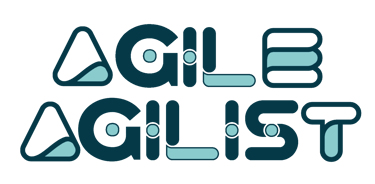Specialize. Optimize. Thrive:
Unleash Your Potential with Role-Based Specialty Agile Classes!
Your job is the lead in the complicated symphony of specializations. Role-Based Specialty Agile Classes will put you in the limelight of knowledge. Each session is a personalized journey, a mastery route meant to sharpen your talents and broaden your impact. Accept the complexities of your role and learn the art of optimization. You don't just learn here; you thrive in the specialized area, opening the doors to unprecedented success. Your path to greatness begins here, where specialties become your superpower. Elevate your craft, embrace the chance, and let Role-Based Specialty Agile Classes lead you to amazing success.
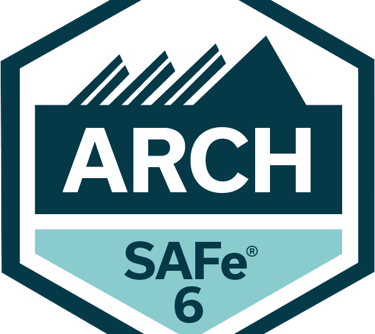

Certified SAFe® Architect
Duration: 3 days
Public Classroom Pricing
1,750
or 437.5/month
PDU 20
Target Audience:
System, Solution, and Enterprise Architects
Architects in supporting technical disciplines
Experienced software developers
Technical managers making architectural decisions
Product leaders collaborating with architects
Learning:
Develop and communicate the architectural vision
Develop solution vision, intent, and roadmaps
Prepare and deliver software effectively and continuously
Lead and coach architects and team members during PI Planning and Execution
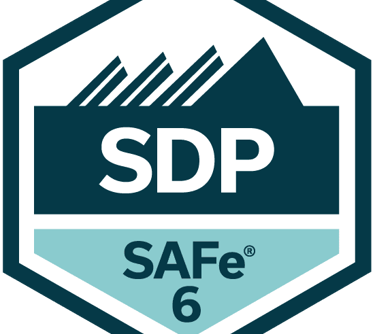

Certified SAFe® DevOps Practitioner
2 days
Public Classroom Pricing
850
or 575/month
PDU 20
Target Audience:
Development Managers, Engineering Managers
Configuration Managers, Release Managers
Development Leads, Developers, UI/UX Developers
Infrastructure Architects, System Architects
Product Managers, Product Owners
System Administrators, DBAs, InfoSec
QA Managers, Testers
Release Train Engineers, Scrum Masters
Learning:
Explain how DevOps enables strategic business objectives
Apply a CALMR approach to DevOps to avoid automating broken processes
Understand how successful DevOps requires Continuous Exploration, Continuous Integration, Continuous Deployment, and the ability to Release to end-users on Demand
Incorporate continuous testing and continuous security into the Delivery Pipeline
Use Value-Stream mapping to measure flow and identify bottlenecks in the end-to-end delivery process
Select DevOps skills and tools strategically for the fastest, most compelling results
Prioritize DevOps solutions and investments for the greatest economic benefit
Design and implement a multi-phased DevOps transformation plan tailored to their organization
Work with all roles and levels in the organization to continually optimize the Value Stream
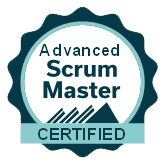

SAFe® Advanced Scrum Master Certification Path
2 days
Public Classroom Pricing
1,350
or 437.5/month
PDU 20
Target Audience:
Existing Scrum Masters
Team Leaders, Project Managers, and others who have assumed the role of an Agile Team facilitator in a SAFe® or Enterprise Agile context
Engineering and Development Managers who are responsible for Agile execution and coaching teams, including teams of teams
Agile Coaches
Agile Program Managers
Prospective Release Train Engineers
Learning:
Apply SAFe® Principles to Facilitation, Enablement, and Coaching in a Multi-Team Environment
Build a High-Performing Team and Foster Relentless Improvement at Scale
Address Agile and Scrum Anti-Patterns
Support the Adoption of Engineering Practices, DevOps, and Agile Architecture
Learn to Apply Kanban and Extreme Programming (XP) Frameworks to Optimize Flow and Improve the Team's Work
Facilitate Program Planning, Execution, and Delivery of End-To-End Systems Value
Support Learning Through Participation in Communities of Practice and Innovation Cycles
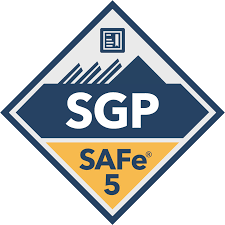

SAFe for Government: Roles and Responsibilities
2 days
Public Classroom Pricing
850
or 437.5/month
PDU 20
Target Audience:
This course is designed for government leaders and influencers who can guide the decision to adopt SAFe® within their agency or program.
Examples include:
Executives, Directors, Branch Chiefs
Managers of development, engineering, QA, architecture, operations, support
Program and Project Managers
Program/Project Management Office (PMO)
Learning:
How to apply Lean, Agile, and DevOps principles and practices in traditional government organizations and cultures.
How to adapt technology strategy, budgeting and forecasting, acquisition, compliance, and governance practices to flow-based practices using emerging government guidelines.
How to organize government programs into ARTs and execute in program increments (PIs), even in remote environments with distributed teams.
How to build an action plan to begin or accelerate a SAFe implementation in your program or agency.
